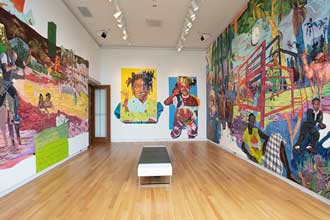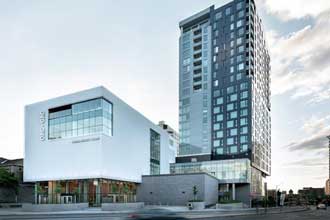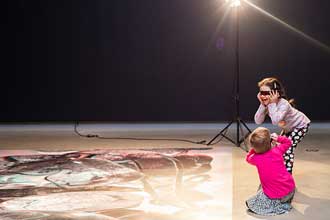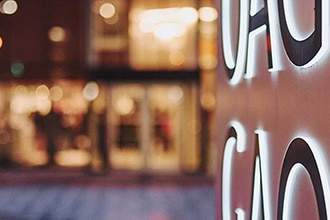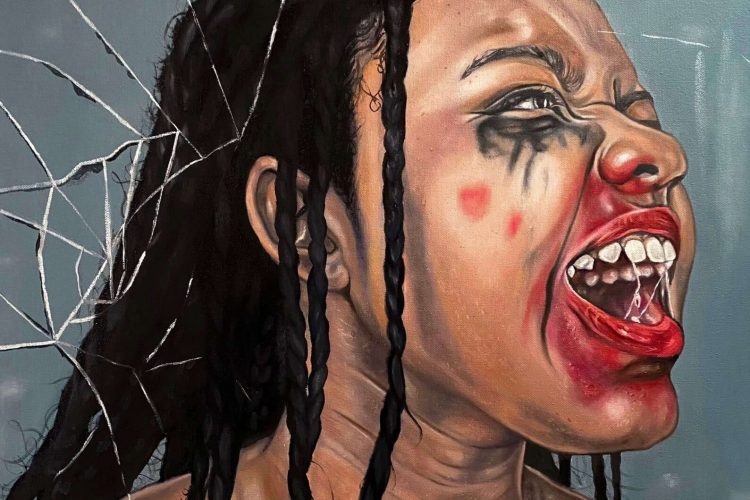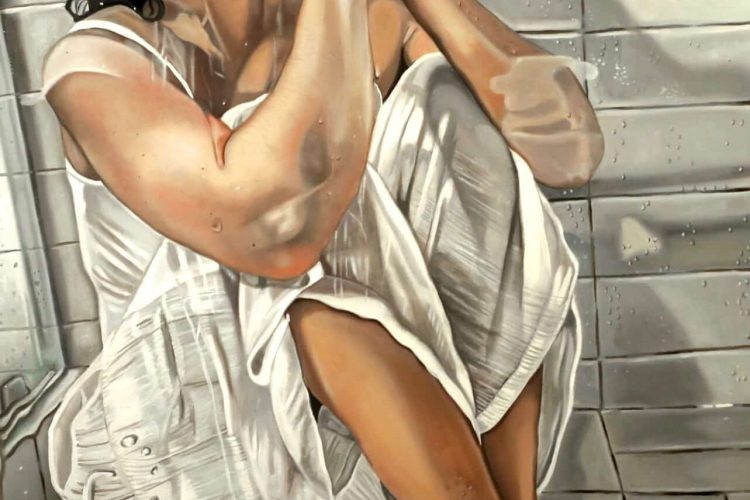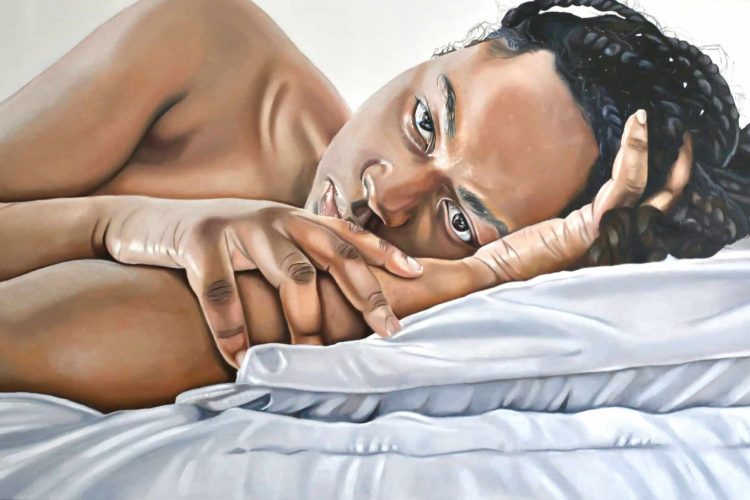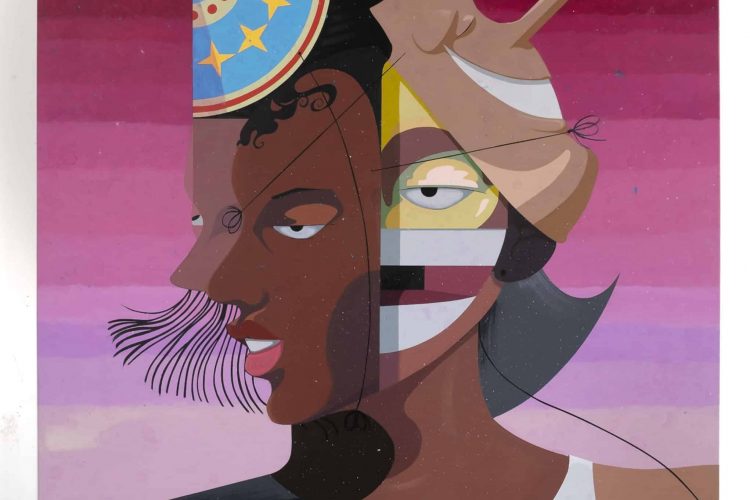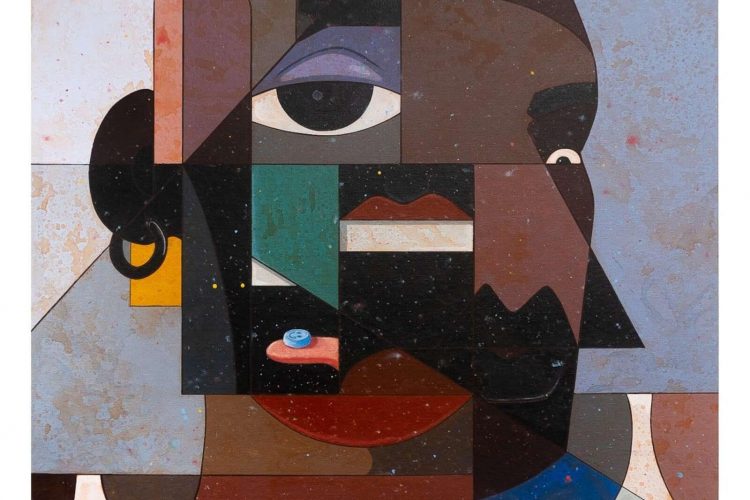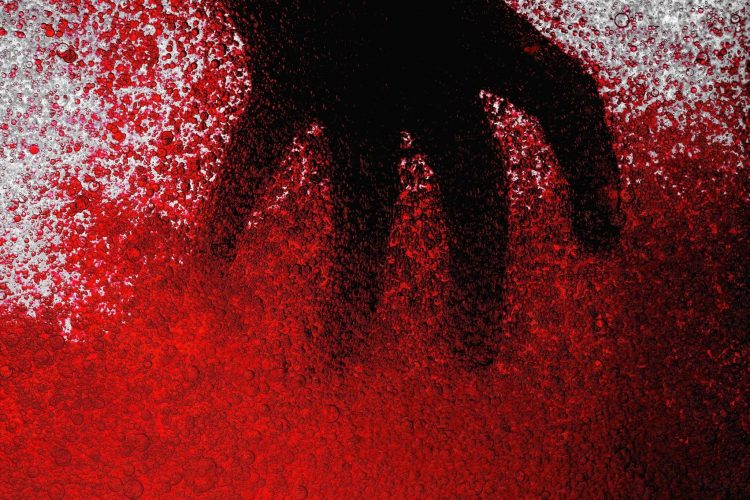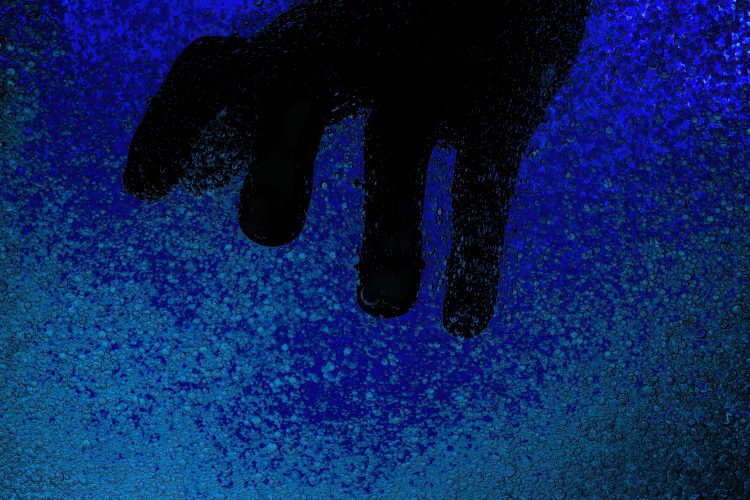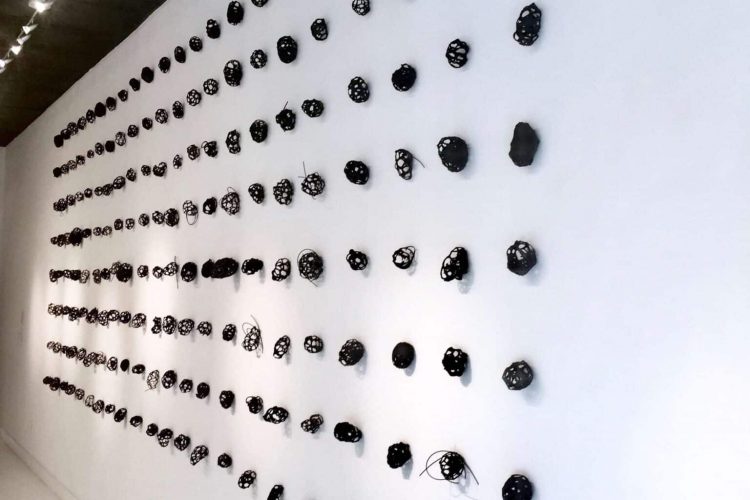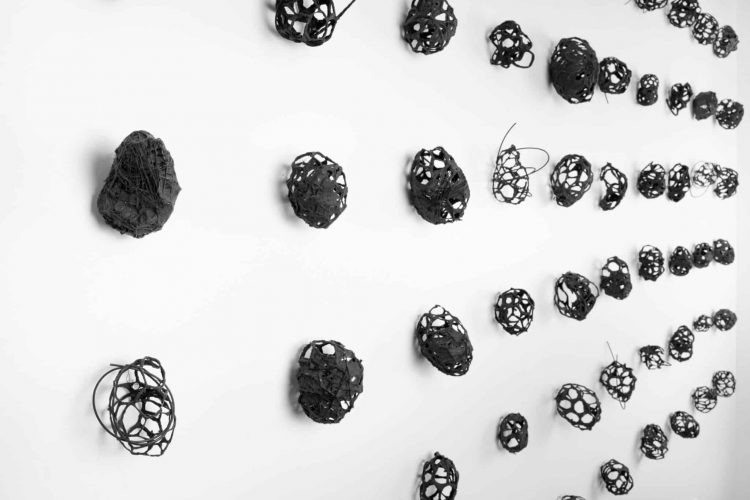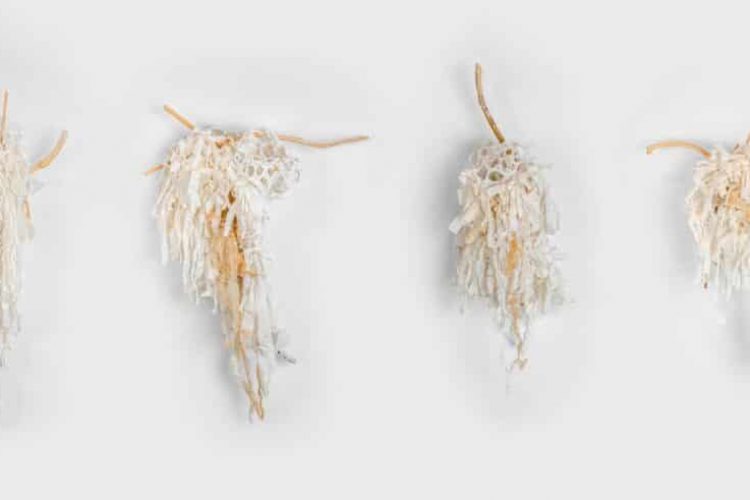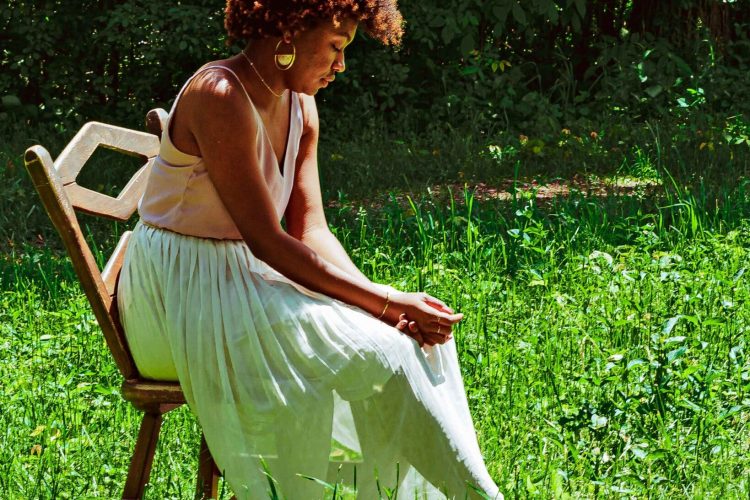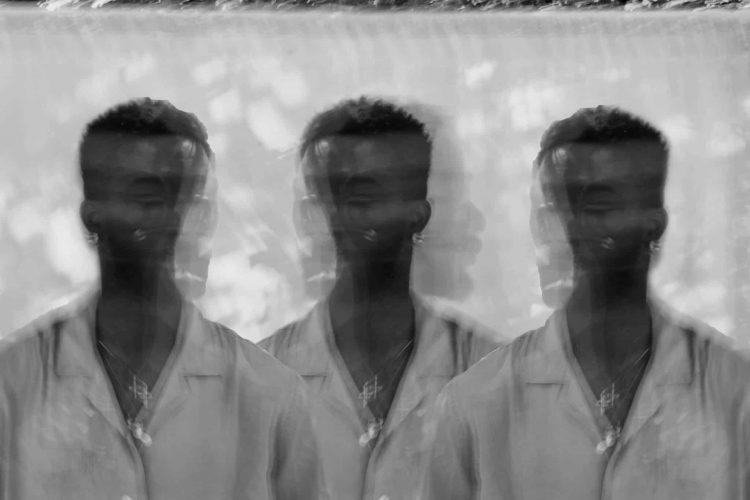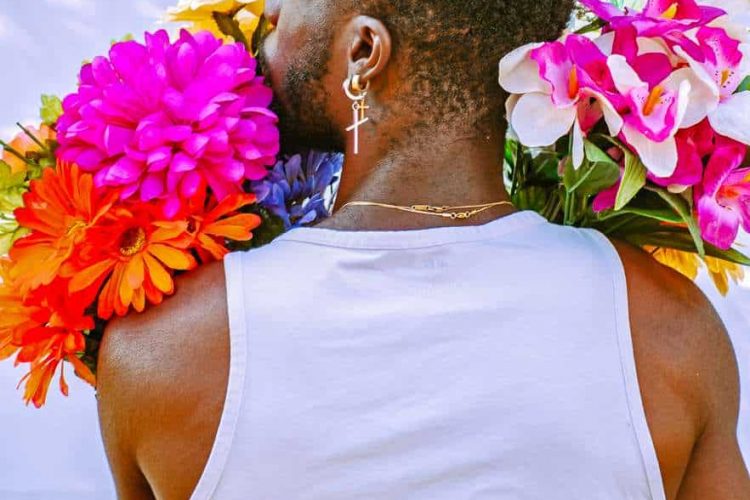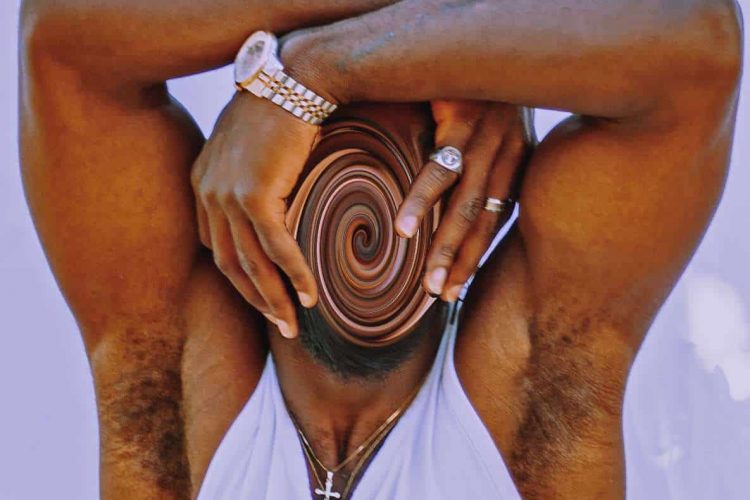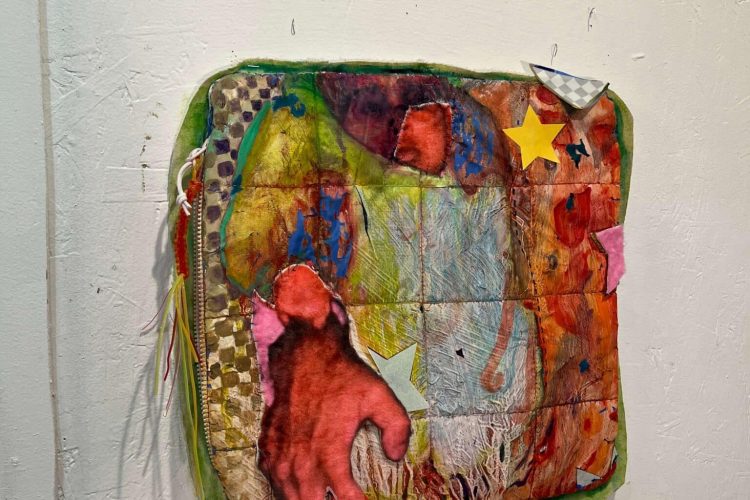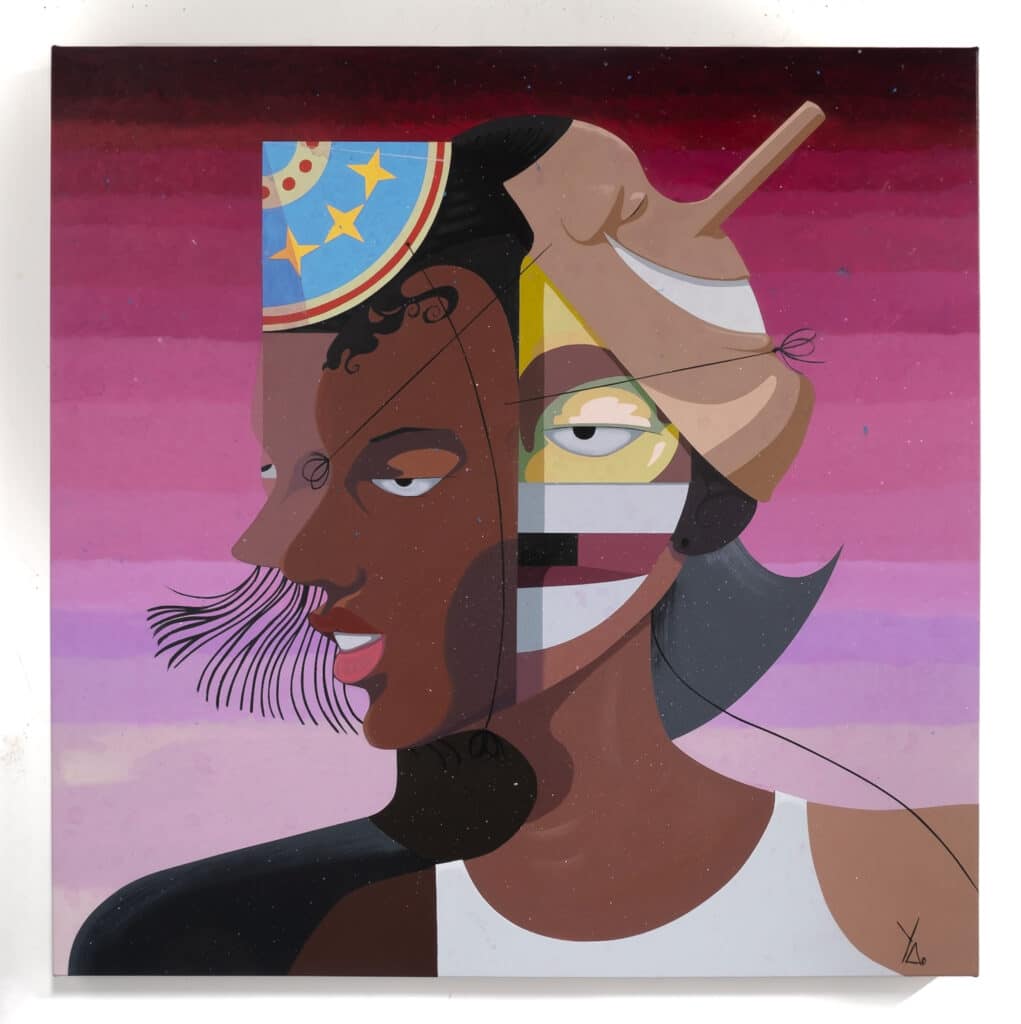Inviting the Conflict
August 31, 2024
- October 20, 2024
Regatu Asefa, Commercial Community Guest Curator
Sarah-Mecca Abdourahman, Tolorunlogo Akinrinola, Stéphane Alexis, Jemimah Lorissaint, Judy Nakagawa, Yomi Orimoloye
Inviting the Conflict
The nuances of our suffering are often unspoken. Grief, despair, and negative thoughts echo within us, demanding to be heard. Yet, this conflict is often suppressed behind a facade of positivity, silenced by societal pressures and taboos. Consequently, we struggle to process these universal emotions, becoming collectively isolated because of our inability to share in the full spectrum of human experience.
The pandemic amplified collective suffering. Our isolated emotions are now recognized as shared experiences. But while life endures, the weight of these emotions persists. How, then, do we navigate and process sadness, anxiety, and insecurity? How do we express the inexpressible, and reconcile our emotional burdens with daily life? In short, how can we sit with our darkness and address conflict together?
Inviting the Conflict presents artistic confrontations with these darker emotional states, positioning art as a cathartic process, exploring how creative expression can navigate and potentially reconcile our pain. Featured works delve into sadness, loss, grief, insecurity, anxiety, vulnerability, and mortality, offering visual manifestations of the artists’ inner turmoil. As such, these works are emotional diaries,1 and raw expressions of hardship.
Judy Nakagawa’s Words of Sadness explores three layers of grief: from moving away from a formative city, to witnessing the decline of her parents, to experiencing the devastating loss of a friend. Tolorunlogo Akinrinola’s My Mental State weaves a story that challenges stereotypes of vulnerability, particularly for Black men, emphasizing the strength and beauty found in emotional openness. Yomi Orimoloye’s Birthday Boy shares an existential melancholy that often comes with aging; am I becoming who I want to be? The layered masks reveal the complexities and performance of ‘self.’ Stéphane Alexis’s Ghost series grapples with the trauma of a near-death experience, including fear, physical pain, and relief. Creating these works forced Alexis to relive the trauma, transforming the artistic process into a path to healing. Similarly, Sara-Mecca Abdourahman’s impulsive work serves as a therapeutic outlet, navigating nostalgia, grief, and the longing for childhood innocence. In Jemimah Lorissaint’s Between Tears and Light, water expresses the artist’s sadness, physical distress, and emotional isolation, yet also cleanses and baptizes the tormented figure – renewed from sorrow.
Inviting the Conflict refuses to silence pain. Instead, it invites vulnerability. By confronting their darkest emotions, these artists have transformed suffering into tangible works of art that resonate with universal human experience.2 We scream, we cry, we ache, and we create in response to our spectrum of emotions. This process, while uncomfortable, is an essential undertaking in living a rich life.
Be uncomfortable. Invite your conflict.
Regatu Asefa. Commercial, Community Guest Curator.
1 From meeting with Jemimah Lorissaint, June 24, 2024.
2 Anja A. Drautzburg and Jackson Oldfield, “Introduction: How Can We Make Sense of Suffering?” In Making Sense of Suffering: A Collective Attempt, eds Anja A. Drautzburg and Jackson Oldfield (London: Inter-Disciplinary Press, 2013), ix.
This exhibition was realised with the support and partnership of the Ottawa Black Art Kollective (OBAK).
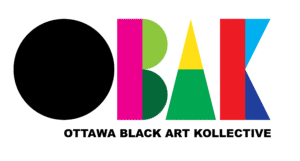
Image: Yomi Orimoloye, Birthday Boy, 2023, acrylic on canvas, 30”x30”. Image courtesy of the artist.
Images
Tour the Exhibition
Related Events
Join us for a Special Edition Happy Hour with the OAG’s Galerie Annexe for the opening reception of Inviting the...
Additional Resources

